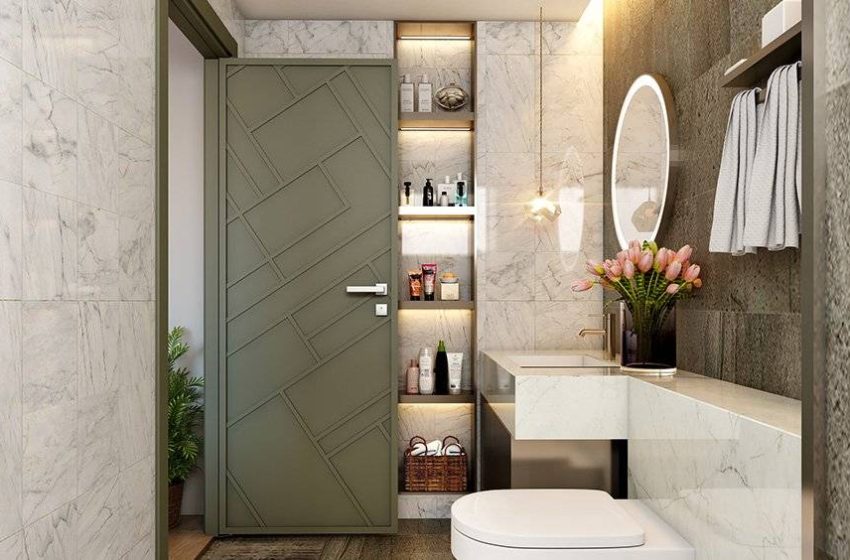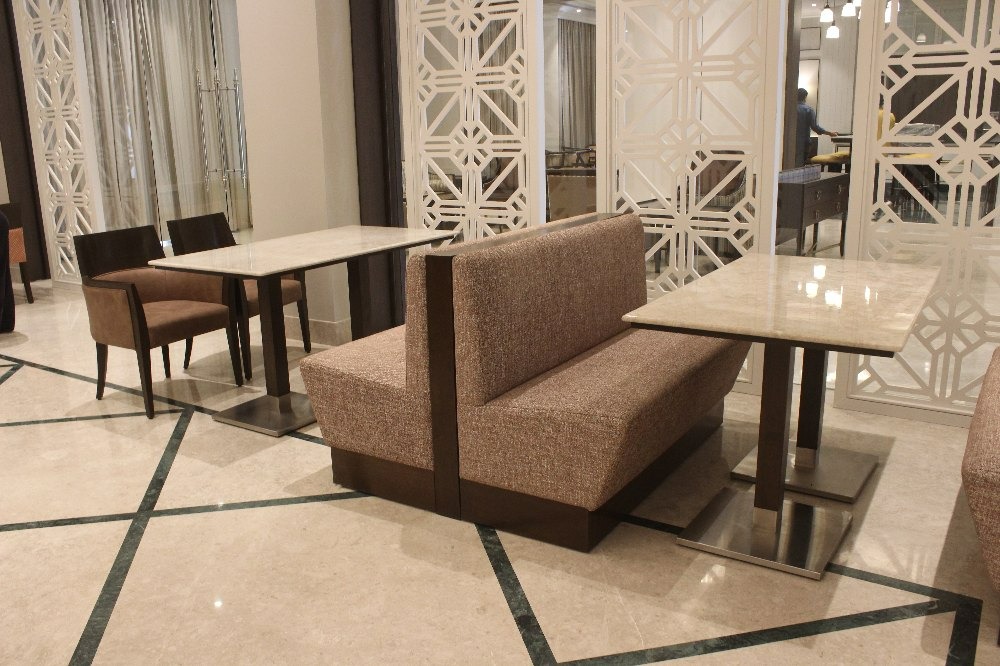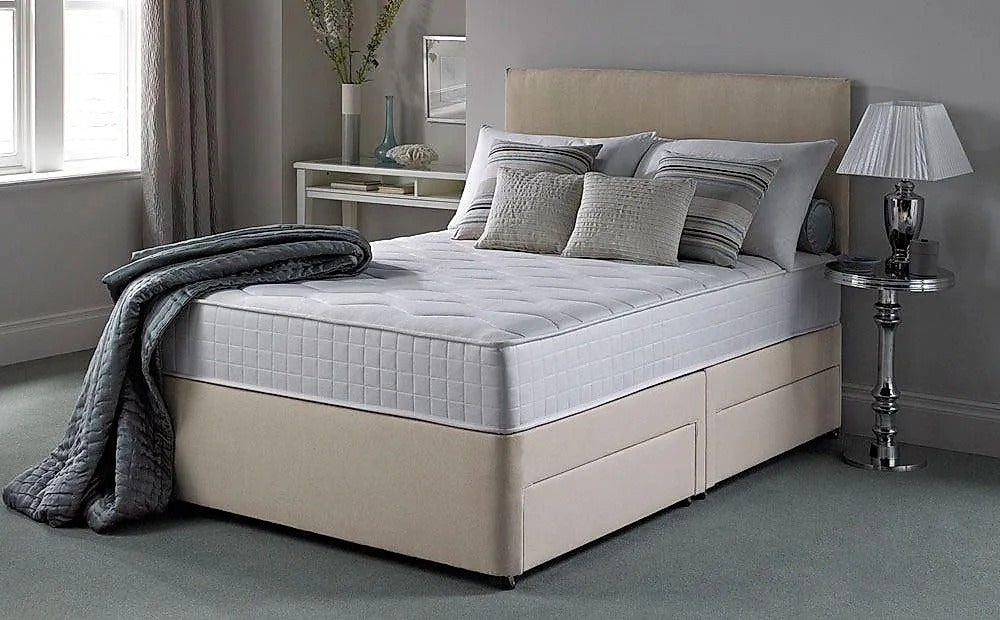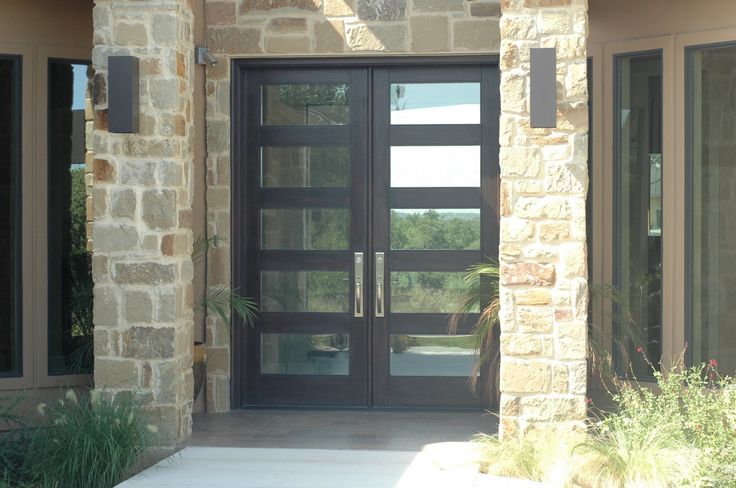Bathroom Doors: A Comprehensive Guide to Choosing the Right Door for Your Space

Bathroom doors play a critical role in the overall design and functionality of your home. Whether you’re remodeling a bathroom or designing one from scratch, selecting the right bathroom door is essential. Beyond aesthetics, a bathroom door must offer privacy, be moisture-resistant, and complement the interior style of the space. With a wide range of materials, designs, and styles available, it can be challenging to choose the perfect door for your bathroom.
This guide will walk you through the various options for bathroom doors, the materials to consider, and the features that make a bathroom door both stylish and functional.
1. Why the Right Bathroom Door Matters
Bathrooms are high-moisture environments, so choosing the right door goes beyond picking a visually appealing option. The right bathroom door needs to withstand constant exposure to steam and humidity, provide privacy, and fit the overall style of your home. Here’s why selecting the correct door is essential:
A. Privacy and Security
A bathroom is a private space, so the door you choose must ensure complete privacy. Solid doors, frosted glass options, or doors with locks are all designed to offer the privacy needed in this space.
B. Durability Against Moisture
Bathrooms produce high levels of humidity, which can warp or damage materials that are not moisture-resistant. For this reason, it’s essential to choose a door made from materials that can handle exposure to moisture without deteriorating.
C. Style and Design Compatibility
Bathroom doors should enhance the design of the rest of your home. Whether your home features a modern, rustic, or traditional style, the door should complement the design theme and blend seamlessly with the bathroom’s décor.
2. Types of Bathroom Doors
When selecting a bathroom door, consider the layout of the bathroom, the amount of space available, and the overall aesthetic of your home. Here are the most common types of bathroom doors:
A. Hinged Bathroom Doors
Hinged doors are the most common type of door found in homes. They swing open on one side and are a classic, traditional choice for bathrooms. These doors can be made from a variety of materials, making them versatile and customizable.
- Pros: Provides full privacy, sturdy, available in many materials.
- Cons: Requires space to swing open, can be cumbersome in smaller bathrooms.
B. Sliding Bathroom Doors
Sliding doors, also known as barn doors, are a popular choice for modern bathrooms. They slide along a track and do not require as much floor space as hinged doors, making them ideal for smaller bathrooms or contemporary spaces.
- Pros: Space-saving, sleek and modern appearance, easy to install.
- Cons: Slightly less privacy due to small gaps, limited soundproofing.
C. Pocket Doors
Pocket doors slide into the wall, making them an excellent space-saving solution. They are ideal for small bathrooms or homes where space is at a premium. Pocket doors offer the same benefits as sliding doors but disappear entirely when opened.
- Pros: Saves space, disappears into the wall, modern and functional.
- Cons: Can be difficult to install, may require wall reconstruction.
D. Bi-fold Bathroom Doors
Bi-fold doors fold in half when opened and are often used in closets or small bathrooms where space is limited. These doors are particularly useful in tight spaces where traditional hinged doors won’t work.
- Pros: Space-efficient, easy to operate, ideal for compact bathrooms.
- Cons: Limited privacy and soundproofing, may require more maintenance due to moving parts.
E. Frosted Glass Bathroom Doors
Frosted glass doors are a stylish and modern choice for bathrooms. These doors provide privacy while allowing light to pass through, creating a bright and open feel. They are perfect for contemporary designs or bathrooms in need of natural light.
- Pros: Provides privacy while letting in light, modern and sleek design.
- Cons: Less soundproofing, can be expensive.
3. Materials for Bathroom Doors
Bathroom doors come in a variety of materials, each with its own advantages and disadvantages. The right material will depend on your bathroom’s style, budget, and the level of moisture resistance required.
A. Solid Wood
Solid wood doors are classic and elegant. They provide excellent privacy and soundproofing, and they are available in many different types of wood, such as oak, pine, or mahogany. However, wood is susceptible to moisture damage, so it’s important to choose a water-resistant finish or consider a wood alternative in high-moisture environments.
- Pros: Durable, excellent privacy and soundproofing, timeless look.
- Cons: Expensive, can warp or rot in humid environments if not treated properly.
B. Medium-Density Fiberboard (MDF)
MDF is an engineered wood product made from compressed wood fibers. It is a cost-effective alternative to solid wood and is often used in interior doors, including bathroom doors. MDF is resistant to warping and can be painted or veneered to mimic the look of solid wood.
- Pros: Affordable, moisture-resistant, versatile.
- Cons: Can swell if exposed to excessive moisture over time.
C. Glass
Glass doors, especially frosted or textured glass, are a stylish option for modern bathrooms. They offer a sleek, minimalist look while allowing natural light to filter through. Glass doors can be framed with wood or metal to add stability and enhance the design.
- Pros: Modern and stylish, allows natural light to enter the bathroom, moisture-resistant.
- Cons: Limited privacy and soundproofing, fragile and expensive.
D. PVC (Polyvinyl Chloride)
PVC doors are highly resistant to moisture, making them ideal for bathrooms. They are affordable, easy to maintain, and available in a wide range of colors and designs. While PVC doors are lightweight and practical, they may lack the elegance of other materials.
- Pros: Moisture-resistant, affordable, easy to clean and maintain.
- Cons: Not as stylish as wood or glass, can look less luxurious.
E. Metal
Metal doors, particularly aluminum or stainless steel, are ideal for modern bathrooms and industrial-style spaces. They are highly durable, resistant to moisture, and easy to maintain. Metal doors can be paired with glass panels or other materials to soften their industrial look.
- Pros: Extremely durable, moisture-resistant, low maintenance.
- Cons: Can be cold or industrial in appearance, less soundproofing than wood.
4. Factors to Consider When Choosing Bathroom Doors
When selecting the best bathroom door for your space, it’s essential to consider a few key factors that will impact the functionality, durability, and aesthetic of the door.
A. Moisture Resistance
Since bathrooms are humid environments, choosing a door that is resistant to moisture is crucial. Wood doors should be properly treated, or alternatives like glass, PVC, or metal may be more suitable.
B. Size and Layout
The size of the bathroom and the available floor space will dictate which type of door is most practical. Hinged doors require space to swing open, while sliding or pocket doors are better for smaller bathrooms.
C. Style and Design
The design of the bathroom and the overall style of your home will influence the door material and style. A frosted glass door might be perfect for a modern home, while a solid wood door might suit a more traditional space.
D. Privacy and Soundproofing
Bathrooms require a level of privacy that not all door types provide. Solid wood and MDF doors offer the best soundproofing, while glass doors may require additional considerations to ensure privacy.
E. Budget
Your budget will also play a role in your selection. Solid wood doors, while beautiful and durable, can be more expensive than MDF or PVC doors. Metal and glass doors are typically more costly, especially when custom-designed.
5. Leading Manufacturers for Bathroom Doors
When it comes to bathroom doors, it’s important to choose a manufacturer known for producing high-quality, durable products. Some of the leading bathroom door manufacturers include:
A. Masonite
Masonite is a leading manufacturer of interior doors, including bathroom doors. They offer a wide variety of materials and styles, including wood, MDF, and glass doors, at various price points.
- Specialty: Interior doors in a wide range of styles.
- Strengths: Customizable designs, high-quality materials, affordability.
B. Jeld-Wen
Jeld-Wen is known for offering doors that are both stylish and functional. They specialize in moisture-resistant materials, making them a great choice for bathroom doors.
- Specialty: Durable, moisture-resistant doors.
- Strengths: Excellent craftsmanship, moisture-resistant options, modern designs.
C. TruStile
TruStile specializes in high-end custom doors that can be tailored to fit any design style. They offer solid wood, MDF, and glass doors, with a focus on craftsmanship and design versatility.
- Specialty: Custom, luxury doors.
- Strengths: Premium materials, bespoke designs, attention to detail.
6. Conclusion: Selecting the Best Bathroom Door for Your Space
Choosing the right bathroom door involves considering both functionality and aesthetics. By selecting a door that is moisture-resistant, durable, and aligned with your design vision, you can enhance both the look and performance of your bathroom. Whether you opt for a traditional solid wood door, a space-saving sliding door, or a sleek frosted glass option, the right bathroom door will provide privacy, style, and long-lasting durability.




